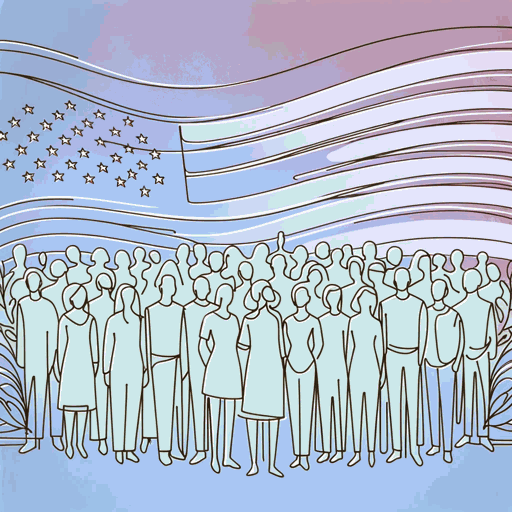55 pages • 1 hour read
Laila LalamiConditional Citizens: On Belonging in America
Nonfiction | Autobiography / Memoir | Adult | Published in 2020A modern alternative to SparkNotes and CliffsNotes, SuperSummary offers high-quality Study Guides with detailed chapter summaries and analysis of major themes, characters, and more.
Important Quotes
“Because I have light skin, however, these stories rank as inconveniences compared to those of people who are more visibly nonwhite or more conspicuously Muslim.”
(Essay 1, Page 13)
Lalami acknowledges her privileges as a light-skinned Arab American woman, noting that others within her ethnic group and religion are targeted more severely. This quote acknowledges that discrimination takes many forms, but it also highlights that discrimination is based on superficial traits. Lalami’s distinction between light and dark skin calls into question the way in which bias and prejudice are evoked by one’s appearance.
“Arab and Muslim citizenship in this country was contingent on either total silence or vocal support for the war, a rule that filtered into scripted dramas of the post-9/11 years: along with the usual Muslim terrorists, television series now included the occasional Muslim CIA officer or FBI agent.”
(Essay 1, Page 16)
The options open to Arab and Muslim American people are laid out and reinforced by evidence from pop culture. To avoid suspicion of being terrorists, members of these groups must either avoid talking about the wars in the Middle East or explicitly support US military intervention. The parallel in television of Muslim members of law enforcement shows examples of “good” Muslims who are true citizens, a practice in media that worsens the public perception of those Arab and Muslim American people who do not specifically voice their patriotism in this way.
“The Muslim ban seemingly applies only to foreigners. […] But in reality, the ban affects millions of Americans directly. An Iranian-American in Los Angeles can no longer sponsor his mother for a visa, but a German-American can.”
(Essay 1, Page 22)
The range of impacts that Trump-era restrictions on immigration by people from primarily Muslim countries had on Americans and those from other countries points to a trend in legislation that Lalami highlights a few times across the collection: While certain policies may seem specific in their purposes, there are often wider consequences to their enforcement.
Related Titles
By Laila Lalami




